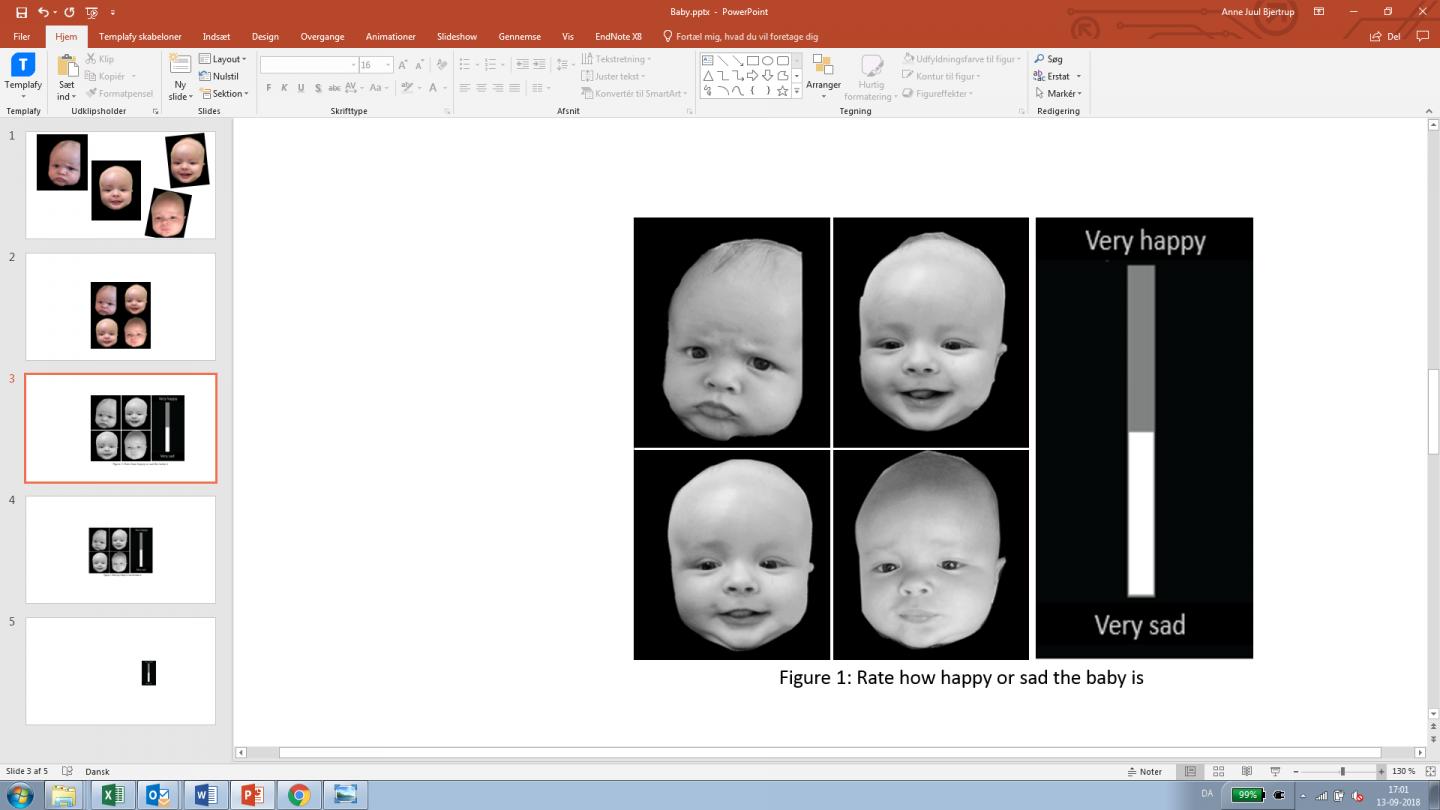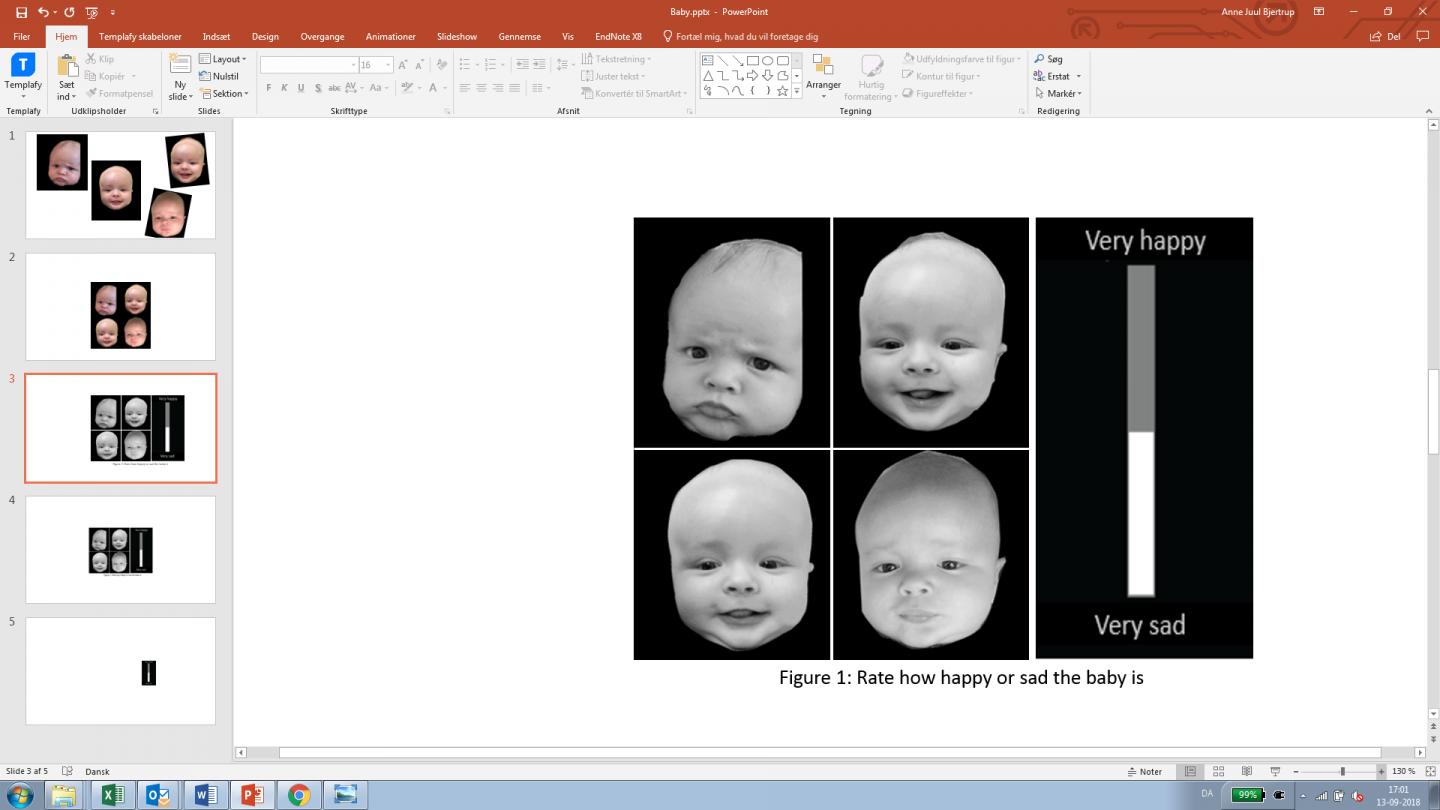
Credit: Anne Bjertrup
A pilot study has found that pregnant women who have suffered from depression or bipolar disorder (i.e. both mania and depression) recognise babies' faces and how babies laugh or cry, differently to healthy controls. This happens even if they are not currently experiencing depressive or manic symptoms and may represent an early risk-factor for children of these women, although the authors stress that research would be needed to confirm any long-term effects. This work is presented at the ECNP Congress in Barcelona.
Figures show that nearly 8% of Europeans (EU) have suffered from depression in the previous 12 months, with the rate of depression in women (9.7%) being around 50% higher than the rate in men. Around 1% of Europeans have suffered from bipolar disorder in the previous 12 months*. With over 5.1 million births in the EU every year, a significant number of the women who become pregnant will suffer from depression or bipolar disorder.
Researchers compared 22 pregnant women, currently well but with a history of depression, and 7 with bipolar disorder who were also currently well, against 28 healthy pregnant women. They also tested 18 non-pregnant women, as controls.
Between the 27th and 39th weeks of pregnancy, all the women were tested for how they responded to a series of happy or sad faces, and to laughter and crying, of both babies and adults. Specifically, the women were asked to rate how happy or distressed the infants were based on infants' facial and vocal displays of emotion (including smiles, laughter and cries). They were also asked to identify adult facial expressions of emotion (including happiness, sadness, fear and disgust) across varying intensity levels
According to lead researcher, Dr Anne Bjertrup (Rigshospitalet, Copenhagen), "In this study, we found that pregnant women with depression or bipolar disorder process infants' facial and vocal signals of emotion differently even when they are not currently experiencing a depressive or manic episode. These differences may impair these women's ability to recognise, interpret and respond appropriately to their future infants' emotional signals".
The researchers found that, compared to healthy pregnant women:
- Pregnant women with bipolar disorder had difficulty with recognising all facial expressions and showed a "positive face processing bias", where they showed better recognition of happy adult faces and more positive ratings of happy infant faces.
- In contrast, pregnant women with previous depression showed a negative bias in the recognition of adult facial expressions and rated infant cries more negatively.
Anne Bjertrup continued: "This is a pilot study, so we need to replicate the findings within a larger sample. We know that depression and bipolar disorder are highly heritable, with up to 60% of children of parents with these affective disorders more likely to develop a mental disorder themselves. Genes play a role, but it is also likely that the quality of the early interaction with the mother is important. The different cognitive response to emotional infant signals in pregnant women with a history of mania and/or depression may make it more difficult for them to relate to their child and could thus confer an early environmental risk for the child.
It's worth emphasizing that this work does not say that the affected women are "bad mothers". It simply means that because of their health history, they may experience difficulties interpreting and responding appropriately to their infants' emotional needs and that we as clinicians need to be more aware of these possible difficulties. These are early days; this is the first research to show this link in both depression and bipolar disorder, so we need further studies to design and test early screening and intervention programs possibly involving ways which will train mothers to interpret the signals from their children better.
But above all, we need evidence of any effect on children; our group have an ongoing study of mothers with affective disorders and their infants, to see if what we have found does indeed make a difference to the mother-infant interaction, which has an impact on the child's psychological development – this is something the work presented here does not address".
Commenting, Professor Eduard Vieta (Institute of Neuroscience, University of Barcelona) said: "This study adds to the growing scientific literature showing emotional bias in people with mood disorders, even when they are in remission, and for the first time shows the difficulties mothers have in identifying emotions in their own newborns. The results, however, do not imply at all that women with such conditions would not be able to raise a child properly and it does not prove any risk for their children since longitudinal data are lacking. This work may help us identify targets for pharmacological and psychological treatments, which in turn may help people with depression and bipolar disorder".
###
Professor Vieta was not involved in this work, it is an independent comment.
Notes
*Incidence statistics: for depression see https://read.oecd-ilibrary.org/social-issues-migration-health/health-at-a-glance-2017/prevalence-of-chronic-depression-2014_health_glance-2017-graph22-en#page1, for bipolar disorder see https://www.ncbi.nlm.nih.gov/pubmed/15935623
The headline and release summary of this press release have been simplified to stay within Eurekalert word limits. The original headline is "Pregnant women recognise baby expressions and cries differently depending on their mental health history".
Media Contact
Press Officer
[email protected]
39-349-238-8191
@ECNPtweets
http://www.ecnp.eu





